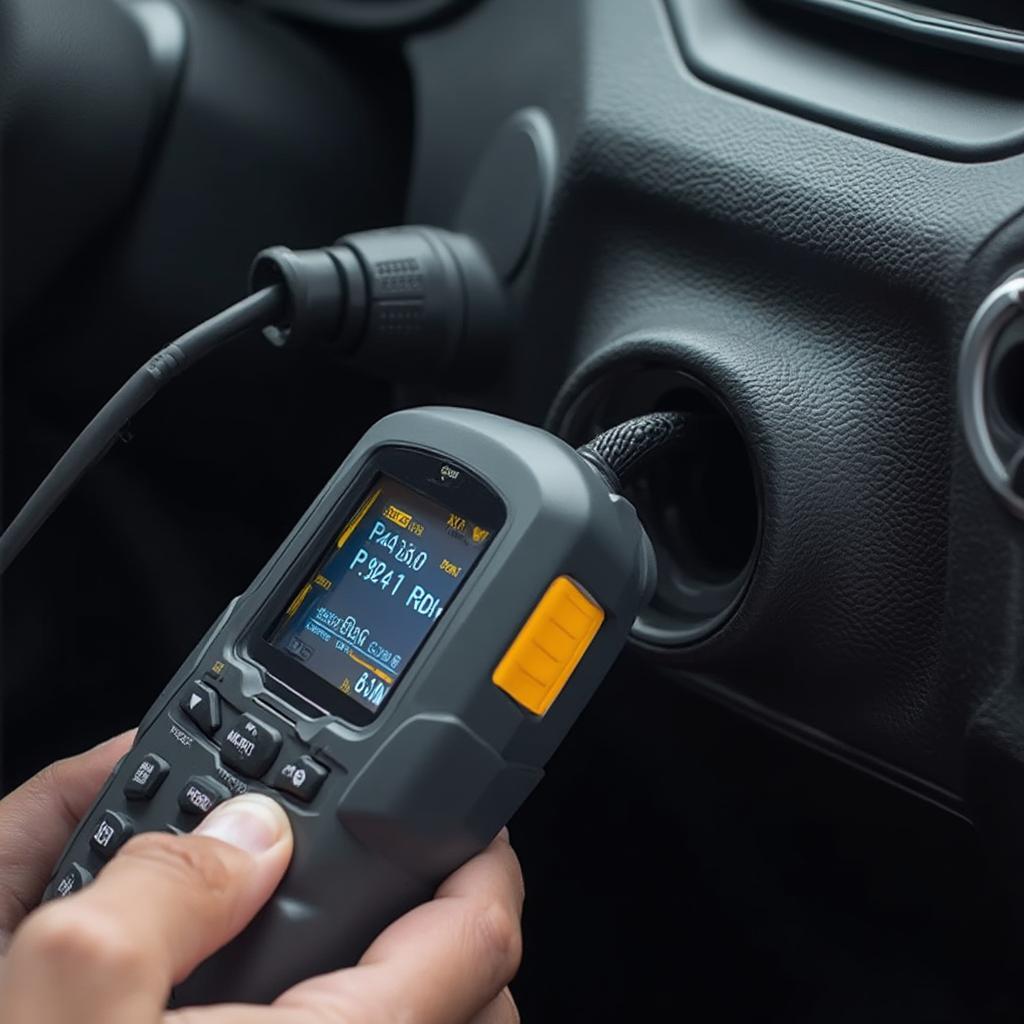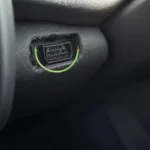The OBD2 code P0430 signals a problem with your vehicle’s catalytic converter system. More specifically, it indicates that the catalyst system efficiency is below threshold for Bank 2. But what does that actually mean, and how serious is it? This comprehensive guide will delve into the intricacies of the P0430 code, equipping you with the knowledge to understand its implications and take appropriate action.
Understanding OBD2 Code P0430
Your car’s engine produces harmful emissions as a byproduct of combustion. The catalytic converter is a crucial component of your vehicle’s emission control system that converts these harmful pollutants into less harmful substances before they are released into the atmosphere.
The P0430 code specifically refers to “Bank 2,” which indicates the side of the engine that does not contain cylinder #1. The “catalyst system efficiency below threshold” means that the catalytic converter on Bank 2 is not converting pollutants efficiently enough.
Common Causes of OBD2 Code P0430
Understanding the potential causes of the P0430 code can help you pinpoint the root of the problem:
- Faulty Catalytic Converter: A damaged or worn-out catalytic converter is the most common cause of this code.
- Oxygen Sensor Malfunction: Faulty oxygen sensors (O2 sensors) can provide inaccurate readings to the engine control unit (ECU), triggering the P0430 code.
- Exhaust Leak: Leaks in the exhaust system, particularly before the catalytic converter, can disrupt the exhaust flow and lead to this error code.
- Engine Misfire: An engine misfire can cause unburned fuel to enter the exhaust system, overwhelming the catalytic converter and reducing its efficiency.
- Faulty Spark Plugs or Ignition Coils: Worn-out spark plugs or ignition coils can also cause misfires, indirectly leading to the P0430 code.
- Fuel System Issues: Problems with fuel injectors, fuel pressure regulator, or fuel lines can disrupt the air-fuel mixture, affecting the catalytic converter’s performance.
Symptoms of a P0430 Code
Besides the illuminated check engine light, you may experience other symptoms if your vehicle is experiencing issues related to the P0430 code:
- Reduced Fuel Economy: A drop in your car’s gas mileage is a common indicator of a catalytic converter problem.
- Loss of Engine Power: You may notice a decrease in acceleration and overall engine performance.
- Sulfur Smell from Exhaust: A strong, unpleasant odor resembling rotten eggs coming from your exhaust can signify a failing catalytic converter.
- Rattling Noise from Underneath the Vehicle: This noise can be a sign of a damaged catalytic converter.
Diagnosing and Fixing the P0430 Code
Diagnosing the exact cause of the P0430 code requires using an OBD2 scanner to retrieve the code and perform further diagnostics. Here’s a general approach:
- Check for Other Codes: Scan your vehicle for other error codes along with the P0430 code, as they can provide valuable clues about the underlying issue.
- Inspect the Exhaust System: Visually inspect the exhaust system for any visible leaks, cracks, or damage.
- Check the Oxygen Sensors: Examine the oxygen sensors located before and after the catalytic converter for signs of damage or malfunction.
- Inspect Spark Plugs and Ignition Coils: Check the condition of the spark plugs and ignition coils for wear and tear.
- Consult a Qualified Mechanic: If you’re unable to pinpoint the exact cause, consult a qualified mechanic experienced in diagnosing and repairing emission system issues.
“Remember, early diagnosis and repair of emission system problems, including those related to the P0430 code, can prevent costly repairs and keep your vehicle running smoothly.” – John Miller, Automotive Engineer
How Serious is the P0430 Code?
Ignoring the P0430 code can lead to severe consequences:
- Environmental Damage: A malfunctioning catalytic converter releases harmful pollutants into the atmosphere.
- Costly Repairs: Delaying repairs can damage other components of your vehicle’s emission control system, leading to expensive repairs.
- Failed Emissions Test: Your vehicle will likely fail an emissions test with a P0430 code, preventing you from renewing your vehicle registration in many areas.
Preventing Future P0430 Codes
While some factors leading to the P0430 code are unavoidable due to wear and tear, following these tips can help prevent future occurrences:
- Regular Vehicle Maintenance: Adhere to your vehicle’s recommended maintenance schedule, including regular oil changes and tune-ups.
- Use High-Quality Fuel: Using high-quality fuel can help prevent the buildup of deposits that can damage the catalytic converter.
- Address Engine Issues Promptly: Address engine misfires or performance issues promptly to prevent damage to the catalytic converter.
 OBD2 Scanner Diagnosis for P0430
OBD2 Scanner Diagnosis for P0430
Conclusion
Understanding the OBD2 code P0430 is crucial for maintaining your vehicle’s health, performance, and environmental impact. By recognizing the symptoms, understanding the causes, and taking prompt action, you can ensure your vehicle’s emission control system operates efficiently and avoid potentially costly repairs.
Need help diagnosing or fixing your car’s P0430 code? Check out our other helpful articles:
Remember, timely action is key to keep your car running smoothly and minimize environmental impact.
